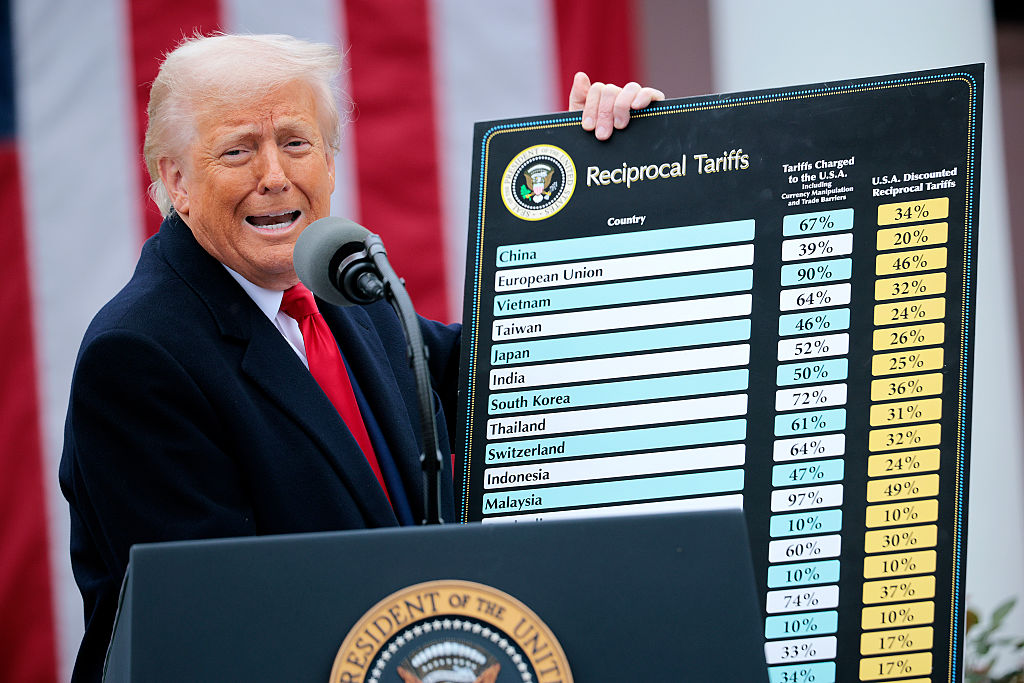Amid the much-anticipated debt ceiling imbroglio, it’s become clear that our national debt can’t keep growing like this. To tackle this issue, we need to start by admitting the problem: about 70 percent of federal spending is mandatory, meaning it grows automatically without congressional input.
Unfortunately, most of this is Social Security, Medicare, Medicaid, and other politically popular entitlement programs. Cutting the benefits these programs dole out is a political third rail most self-interested political actors won’t dare to touch. Luckily, we don’t need to eliminate these programs. What entitlement reform supporters want is to secure these programs’ solvency and make sure they’re there for future generations. They understand that a world in which interest on the debt is the largest federal expenditure — sucking up 70 cents on every tax dollar — is one that cannot sustain a robust social safety net.
That’s why so-called “populist” conservatives’ cavalier approach to the debt problem, like that of Senator JD Vance, is irresponsible and disingenuous.
Nevertheless, threatening to default on the debt limit is not a viable course of action. Playing chicken with the debt ceiling risks economic calamity and invites political backlash that would impair any future attempt to rein in spending. Republicans are better off acknowledging that they will ultimately vote to raise the debt ceiling in conjunction with angling for cost-saving measures like ending pandemic-related emergency spending or establishing a bipartisan legislative process to keep the Social Security and Medicare trust funds solvent.
There are two other difficult proposals that could also help.
One would be to ditch the debt ceiling entirely. If conservatives were to assent to this in exchange for measures to address unrestrained mandatory spending, such as the enactment of statutory fiscal targets, it would be a win-win for deficit hawks. Enshrining constraints on spending in law would be a good way to begin getting our financial house in order. And killing the debt ceiling would have no meaningful impact on the trajectory of our national debt.
All eight of the largest deficit-reduction laws passed since the mid-1980s have been tied to bills designed to reduce the national debt. But much has changed since the early 2010s. In the past, the debt ceiling may have restrained our most profligate impulses, but this hasn’t been the case for some time. In 2017, 2018, and 2019, under President Trump, Republicans hiked the debt limit while introducing significant spending increases.
Of all the OECD countries, only the United States and Denmark have debt ceilings, and Denmark’s is high enough that Copenhagen is at no risk of default. Perhaps if we still had a functioning legislative branch, it would make sense to maintain the debt ceiling as a means of re-introducing fiscal prudence, but as of now it’s just an economic time bomb. The risk of default is too great.
The second proposal to begin fixing our financial woes is fully funding the IRS. For decades, conservatives have employed a “starve the beast” strategy aimed at shrinking the administrative state by denying the federal government the funds to expand. Unfortunately, this hasn’t panned out the way some intended.
In practice, attempts to deprive the government of revenue streams have not rolled back the state. The government continues to grow, posing an ever greater threat to individual liberty. Tax cuts have often been positive from a revenue and growth perspective, but they have not forced Uncle Sam to consider dieting because he can always finance his eating addiction by borrowing.
Reducing IRS funding rests on similar faulty logic. Impeding the service from doing its job won’t solve the problem of an increasingly omnipresent state because the Treasury can just take on more IOUs. We’re better off funding the agency so it can enforce the tax laws on the books, rather than taking on more debt or raising taxes.
Many contend that IRS enforcement is often regressive and discriminatory. Those concerns hold up. The poor are subjected to a disproportionate number of IRS audits, and in the past conservatives have been targeted by rogue administrators at the agency. However, the audit rate has collapsed for rich people while tax evasion has increased precisely because the agency is chronically underfunded. If the IRS was able to do its job, the most affluent among us wouldn’t be able to dodge tax enforcement as easily, and the indigent would cease being the agency’s primary focus. Economist Brian Riedl said it best on The Remnant podcast with Jonah Goldberg:
I think there’s a legitimate case that we should go after millionaire tax cheats before raising taxes on the middle class. I think this is kind of a conservative credibility issue. They’re not going to listen to you on other revenue issues if you’re defending that.
As for the political persecution issue, a better-funded IRS is a more accountable IRS. Giving the agency the money to modernize will enable it to establish a robust customer service system. And ensuring the Treasury Inspector General for Tax Administration has the resources he needs to provide independent oversight will safeguard against abuses of power.
Both of these proposals will invariably face pushback from conservatives who are rightfully concerned about the size and scope of government. But doing away with the debt ceiling and fully funding the IRS would, counterintuitively, move the ball in the right direction.

























